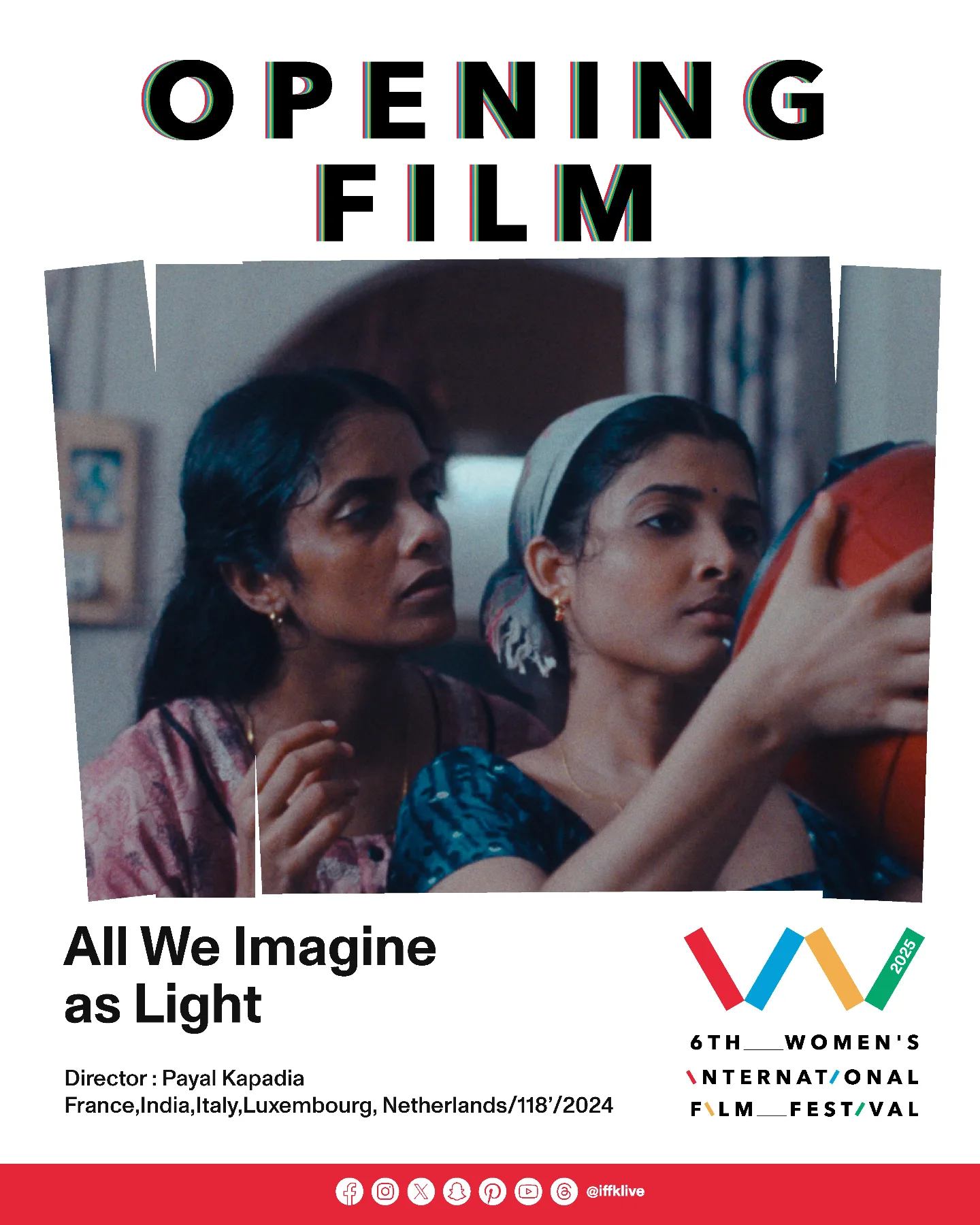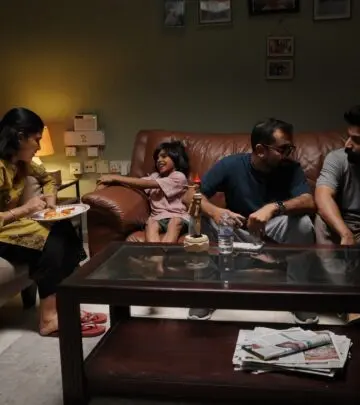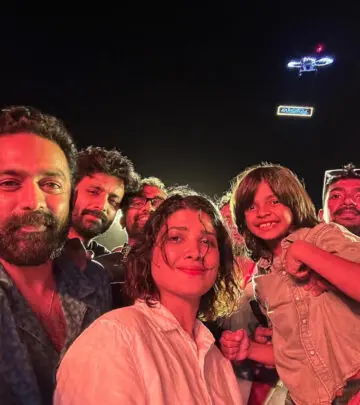Cannes Winner Opens Women’s Film Festival In Kerala
Haunting exploration of love meets cinematic triumph as a Cannes winner lights up Kerala!!

Image: Instagram
Payal Kapadia’s ‘All We Imagine as Light’ has already cemented its legacy by winning the Grand Prix at Cannes, and now it is set to mark a new milestone as it opens the 6th Women’s International Film Festival at Kottarakara in Kerala. The film, lauded for its haunting exploration of love, loss, and the shifting boundaries between reality and desire, promises to be a compelling visual narrative that resonates deeply with audiences and cinephiles.
Festival Debut And Celebration
Set against the vibrant backdrop of Kerala, the upcoming Women’s International Film Festival welcomes a series of films that celebrate women in cinema. Anchoring this year’s opening is Kapadia’s film—a project that fuses artistic visual storytelling with poignant themes of female empowerment and introspection. Festival organizers have highlighted the film’s Cannes success, noting that its screening is not only a mark of artistic excellence but also a rallying call for women filmmakers across the globe. The official hashtags such as #WIFF, #WIFFKottarakara, and #WomenFilmmakers echo the growing momentum of female voices within the film industry.
Critics describe the film as “a haunting exploration of love and loss set against the backdrop of shifting realities and hidden desires.” By intertwining abstract narrative styles with raw human emotions, Kapadia crafts a cinematic experience that draws viewers into a world of introspection and vulnerability. The film’s compelling story challenges conventional portrayals of romance while offering a fresh perspective on complex relationships in modern society.
Haunting Imagery And Narrative Depth
Kapadia’s direction is marked by a synthesis of surreal visuals and layered storytelling. The film’s imagery—both evocative and enigmatic—serves as a visual metaphor for the transformative power of love and the bittersweet nature of loss. As audiences embark on this journey, they are invited to experience a delicate interplay between fantasy and reality. The narrative encourages viewers to question the boundaries that define their perceptions of love, thus sparking dialogues that traverse creative storytelling and cultural critique.
This cinematic venture is not just a personal milestone for Kapadia but also a significant moment for global cinema where experimental narratives are being celebrated. The film’s dynamic use of symbolism and mood invites audiences to immerse themselves in a thoughtful critique of contemporary relationships, bolstering its reputation both as an art piece and as a progressive commentary on emotional resilience.
Artistic Influence And Global Impact
The transition of ‘All We Imagine as Light’ from Cannes to the festival stage in Kerala underscores the evolving landscape of international cinema. Kapadia’s achievement at Cannes has amplified her recognition, ensuring that the film attracts attention from cinephiles far and wide. The festival’s programming is designed to highlight such innovative works that defy traditional storytelling, making it a fitting venue to honor the film’s international acclaim.
Adding another layer to this narrative is the celebrated actress Divyaprabha, known for her refined style and international red carpet presence. In several related social media posts, Divyaprabha has been lauded for her grace and nuanced approach to cinema—attributes that resonate strongly with Kapadia’s creative vision. Her support and global recognition serve to underscore the importance of a culturally diverse and authentic cinematic expression. Divyaprabha’s international accolades, gained at festivals such as Cannes, Locarno, and San Sebastián, further reinforce the significance of breaking traditional cinematic boundaries and championing female voices.
Cultural Renaissance On Screen
Kottarakara, with its rich artistic history, now finds itself at the crossroads of a cultural renaissance. The festival not only promises an array of international films but also sets the stage for a dynamic cultural dialogue that bridges global artistic trends with indigenous narratives. Through its comprehensive program—including screenings, panel discussions, and interactive workshops—the festival aims to create an atmosphere where traditional narratives and modern storytelling coexist harmoniously.
Social media has played its part in amplifying excitement around the event. A recent Instagram post (https://www.instagram.com/p/DJ3TtfqOiwi/) showcased striking promotional visuals from the film, drawing attention to its unique aesthetic and storytelling prowess. These glimpses into the production process and behind-the-scenes moments serve as a teaser, inviting audiences to witness a cinematic experience that is both visually arresting and emotionally engaging.
The upcoming festival is a testament to the transformative power of cinema. As audiences gear up to witness Kapadia’s visionary work, the event itself becomes a celebration of women’s creative expression. In an era when global platforms are increasingly championing diverse voices, the festival—and its choice of an opening film that challenges and intrigues—stands as a powerful reminder of the limitless potential of storytelling.
With anticipation building and conversations flourishing online, the stage is set for ‘All We Imagine as Light’ to captivate hearts and minds. This film is more than just a cinematic creation; it is an invitation to explore the myriad shades of human emotion and to embrace the evolving art of filmmaking. As viewers leave the theatre, they will carry with them not only the film’s luminous visuals but also a renewed perspective on the transformative nature of art.
In the confluence of global acclaim and local heritage, Kapadia’s work marks a bold step forward in modern cinema—one that continues to inspire, challenge, and illuminate the path for future storytellers.
Read full bio of Glendon Moss



















